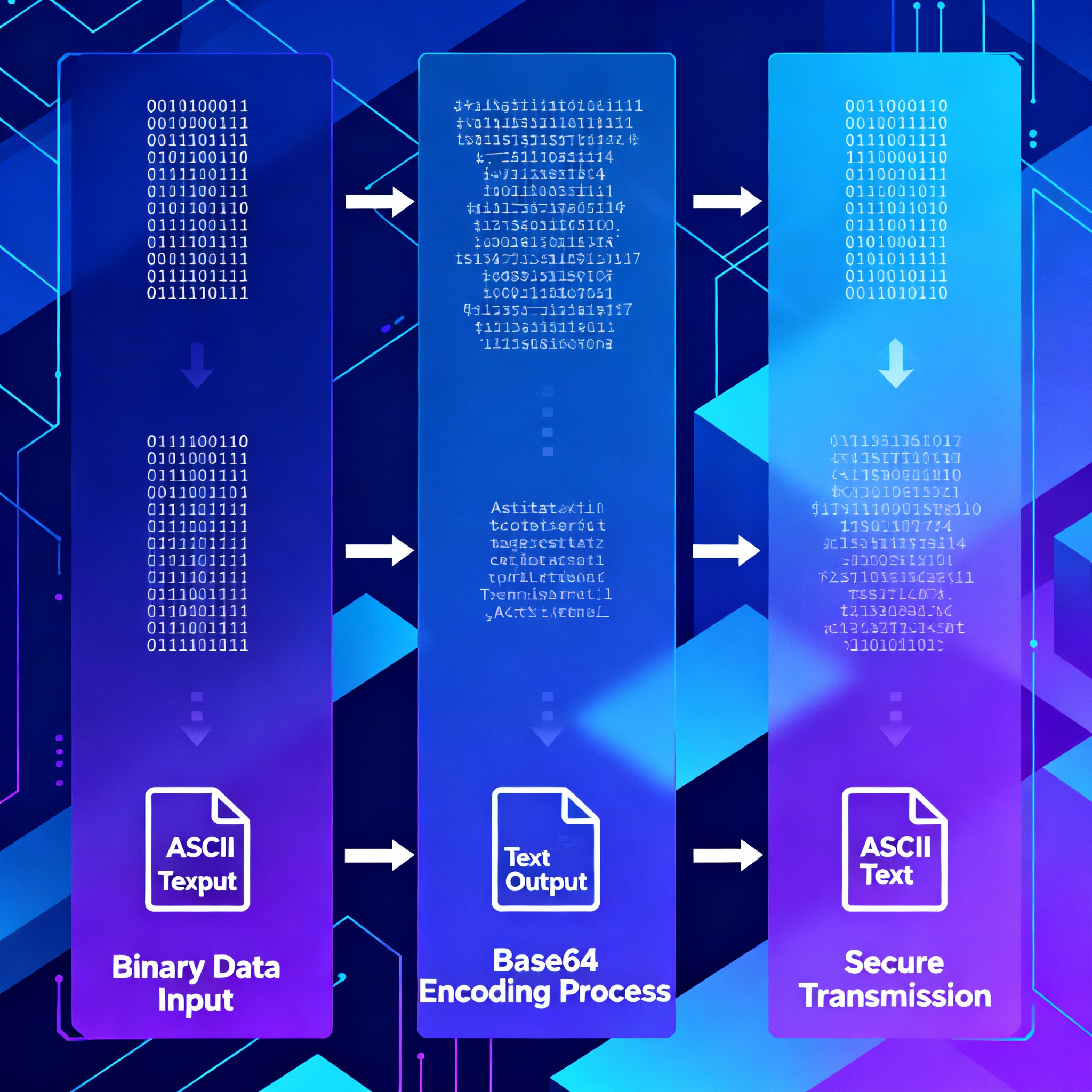
Base64 encoder
Created on 18 October, 2025 • Converter tools • 80 views • 2 minutes read
A Base64 encoder is a software utility or algorithm that translates binary data (such as images, files, or plain text)
Base64 Encoder: Efficient Data Encoding for Secure File and Text Transmission
What Is a Base64 Encoder?
A Base64 encoder is a software utility or algorithm that translates binary data (such as images, files, or plain text) into a text-based format using the Base64 encoding scheme. This scheme uses 64 ASCII characters—uppercase and lowercase letters, numbers, and a few symbols—to represent binary data in a way that is safe for transmission over text-driven protocols like email, HTTP, or HTML.
How Does Base64 Encoding Work?
Why Is Base64 Necessary?
Many systems and formats only support text data, which means that raw binary files (like images or documents) can get corrupted during transmission. Base64 encoding solves this by converting binary data into readable characters, ensuring integrity and compatibility across devices and platforms.
How Base64 Encoding Operates
- Input: Any binary data (e.g., a PNG image or a PDF file).
- Process: The encoder algorithm splits data into 6-bit groups and maps each group to a character in the Base64 alphabet.
- Output: Text string representing the original binary data, safe for copy-paste, emails, web scripts, or databases.
For example, the text “hello” becomes aGVsbG8= in Base64, maintaining original content without the risk of data corruption.
Benefits and Use Cases of Base64 Encoder
Secure Data Transmission
Base64 encoders enable secure email attachments, embedding images in HTML or CSS, and safe data transfer in JSON or API payloads. Because the output is plain text, it's less likely to break protocols or trigger unwanted behaviors.
Web Development Solutions
- Inline Images and Fonts: Use Base64 strings to embed images or fonts directly in CSS, speeding up page load times and reducing external HTTP requests.
- Authentication Tokens: Encode sensitive user data for temporary transmission in cookies or authorization headers.
Cross-Platform Compatibility
Text-based data is universally supported, making Base64 ideal for sharing multimedia content or binary files between operating systems or software environments.
Popular Base64 Encoder Tools and Libraries
Online Encoders
There are many free web tools that let users encode or decode files, text, and images with a click—simply upload, convert, and copy to the clipboard.
Programmer Libraries
Languages like Python, JavaScript, PHP, and Java offer built-in Base64 encoding libraries, enabling developers to automate data conversion for apps, APIs, and cloud workflows.
SEO and Security Considerations
When to Use Base64
While incredibly convenient, Base64 should not be used for encrypting or securing private information—it only encodes data. For actual security, combine Base64 with robust encryption protocols.
Conclusion
Base64 encoder tools are vital for anyone needing quick, reliable conversion of binary data for text-based transmission. Whether you’re a developer, marketer, or IT professional, knowing how—and when—to use Base64 encoding unlocks smooth, secure communication in our digital world.
Popular posts
-
GIF to BMPImage Manipulation tools • 583 views
-
GIF to WEBPImage Manipulation tools • 462 views
-
GIF-to-PNGImage Manipulation tools • 363 views
-
SHA-3/512 generatorConverter tools • 292 views
-
GIF to JPGImage Manipulation tools • 257 views